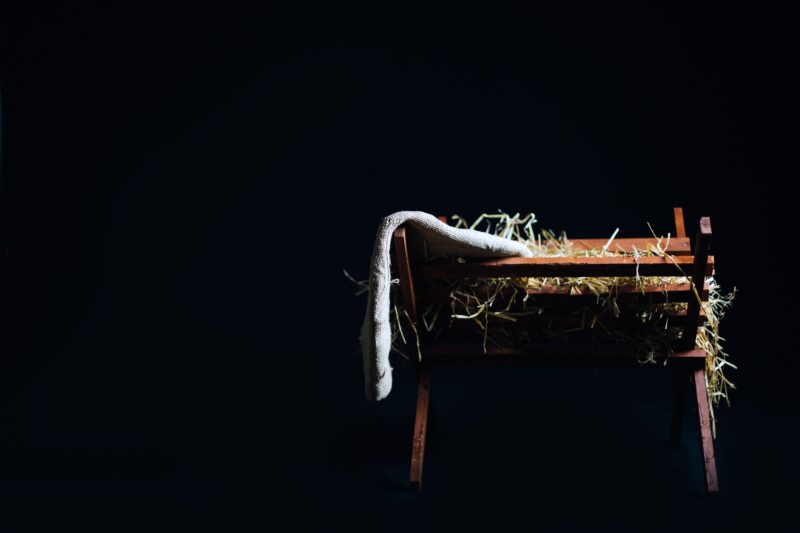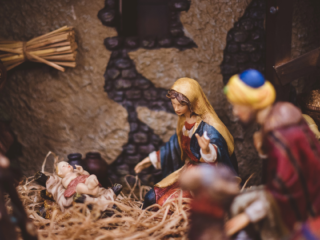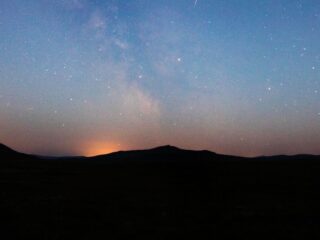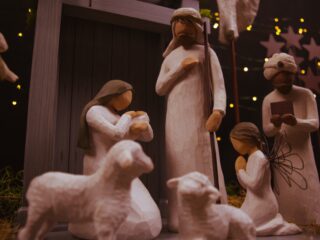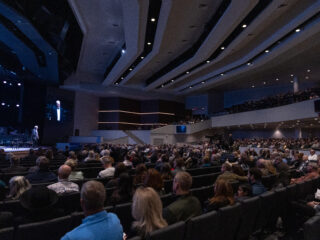Like most of us, I’ve read the Christmas story a thousand times. I have studied and translated the first two chapters of Matthew and Luke. I’ve supplemented these readings by seeking to understand how Israel’s understanding of the prophet’s descriptions of the Messiah would have influenced their reception of Jesus. Every time I read these passages, I find some new insight or surprise at the glory of God’s great risk for our salvation by sending His Son into our world.
As you can imagine, I have some theories.
For instance, Luke tells us that when Jesus was born, Mary wrapped Him in swaddling clothes and laid Him in a manger.
Really? I’m not sure I buy that.
Have you ever seen a manger? For those of us who grew up around farms, a manger is nothing more than a poetic way to describe a feeding trough. Have you ever seen a feeding trough? Do you know what’s in a feeding trough? First, there is hay or animal feed, mainly some kind of grain like corn or oats. Now, if you have grain in an outside container, what does that mean? Bugs. If you push the feed around in a feeding trough, you will see all kinds of little critters at the bottom of the feeding trough eating the grain and trying to stay hidden underneath the feed.
Having bugs mean you have mice. You have never been in a barn that didn’t have mice. The food opportunities are just too enticing.
Hold that thought.
The second part of my theory is this. In local church ministry, the most demanding, critical, most imposing person we ever have to deal with is a first-time mother. A mother bringing her firstborn child to the nursery for the first time is one of the most fierce creatures you’ll ever encounter. She wants to know when the room was last cleaned. When were the toys last disinfected? Is the wall paint safe for babies? When was the last time the baby sheets were washed? When was the last time the crib was wiped down?
(When their second or third child comes along, this same mother will drop them off at the nearest curb, but the first child is a whole new experience.)
Now, let’s get back to Mary. She is a new mother. She has just given birth to her firstborn son and, on top of that, He’s the Son of God. She’s not going to just put Baby Jesus anywhere, and certainly not in a feeding trough.
Here’s what I think happened. Mary gave birth and was tired. She wanted to rest. So, she would have given the baby to Joseph. Joseph, being a new dad, would have held his baby for a while, but babies get heavy. Eventually, Joseph would have gotten tired as well and, looking around, Joseph would have seen the manger.
Joseph would have thought the following: the hay is soft, the manger is the right size for Baby Jesus, and he’ll only put Jesus in the manger for a little while. He’ll pick Him up again before Mary wakes up.
What can I say? Joseph is a guy. He would have looked at the manger and then, he would have looked at Jesus. He would have noticed that the manger and the baby were about the same size and he that placing Jesus in the manger would be a perfectly good way for Jesus to rest. The baby could rest. Mary could rest, and he could rest. What’s the problem?
Mothers around the world are now cringing at the thought of a newborn baby sleeping in a feeding trough.
What would you have done? When a tired and exhausted Mary handed the baby to you? Would you have pulled Him into your chest, holding Him closely to your heart? Or, would you have found somewhere convenient to lay Him down?
Every decision in our lives, everything we dream and hope for is all hanging on this one decision — what will you do when God hands the Baby to you?
The scandal of Christmas isn’t that Jesus has come into the world. The scandal is that Jesus has come to us. The offense of Christmas isn’t that Jesus was laid in a manger, but that God placed Christ in the unsanitary hearts of people like you and me.
God, in His wisdom, knew that we couldn’t get to Him. It’s not for lack of effort. It’s just beyond our capacity. We don’t have the wisdom, courage, or compassion to do what needs to be done. You only have to look at the problems of today to be reminded that most of them were solutions to yesterday’s problems. Yesterday, the burning of coal solved our energy needs. Today, the burning of coal is causing climate change. We repeat this unfortunate cycle in every area of our lives. We fix one area of our lives only to realize we’ve broken it somewhere else.
The Father broke these cycles of despair by stepping into human history. That was God’s choice. Now, at Christmas, He waits for us to choose — what will you do when God hands the Baby to you?

